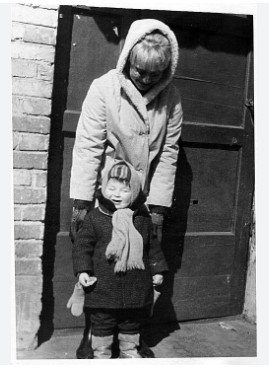1/15 In todays S.A.L.O. we will talk about Mi Hazánk Mozgalom, the Hungarian far right party of László Toroczkai. Literally translated “Our Homeland Movement” it has a strong ultranationalistic vibe with xenofobic tendencies. 

2/15 Mi Hazánk emerged from a split from another rightwing party called Jobbik. Jobbik had decided it wanted to shift away from its radical beliefs. László Toroczkai and a few others disagreed and decided to form their own extreme rightparty in 2018. 

3/15 Toroczkai made some small alliances with other small rightwing parties and formed Nemzeti Légió. The latter can be described as an uniformed self defense force. His former party was associated with a similar group called Magyar Garda. It was disbanded by court in 2010. 

4/15 2022 marked a breakthrough, the party gaining 6% of the votes. It was the first time since WWII a party so rightwing had surpassed the 5% treshold to enter Hungarian parlement. Even more remarkable was that it was polled as the biggest party in the age group 18-27. 

5/15 Celebrating the election wing, Toroczkai invited his political friends of FvD (Netherlands), AfD (Germany), AfS (Sweden) and Bulgarian Revival Party. All sharing themes like anti-EU, anti-Immigrant, anti-Island and pro-Russia. Fvd’s Baudet later featured on their congres. 

6/15 That the views of Mi Hazánk are utterly racist may come as no surprise, it strongly advocates to ‘get rid’ of the Roma community as they are no ‘real’ Hungarians. The more liberal Budapest opposed and took a stance, evicting Mi Hazánk out of one of their offices. 

7/15 Mi Hazánk prefers to look at the past. The dream of the old Hungarian empire is still alive. The same applies to Victor Orban who even sported a scarf with Slovak and Ukrainian areas being part of Hungary, while meeting his Slovakian collegue.




8/15 The country lost more than 70% of its territory as punishment for their role in WWI. The Trianon Treaty of 1920 partitioning what was left of the Austria-Hungarian empire is still felt as a grave injustice. 

9/15 Trianon had assigned the Zakarpatia region to Czechoslovakia 1920. In 1946 it changed hands again as the USSR decided to add it to the Ukrainian Soviet State. The locals hadn’t lost their language culture though and are still seen as a Hungarian diaspora within Hungary.




10/15 Toroczkai made international headlines 27th january stating he wanted to seize Zakarpatia if Ukraine loses the war. The Hungarian party laid its cards right on the table. It showed a dark resemblance to Putins “NovoRossiya’’ an idea to claim land on basis of history. 

11/15 The thought to just split up Ukraine isn’t new, Russia has long advocated this plan before. In 2008 Putin made remarks to partition Ukraine informing if the Poles didn’t have interest in the Lviv province? Lviv had belonged to Poland in the past. 

12/15 The plans of Mi Hazánk clearly awoke other sleaping dogs like Claudiu Tarziu. The Romanian right wing politician wants to get old Romanian territories on Ukrainian soil back. His Romanian Union Party isn’t far off from Mi Hazánk ideology. 

13/15 The just partition Ukraine voices are part of a bigger Russian propaganda narrative. It suggests a solution as merely dividing parts like you do with a birthdaycake: each cut.Russian propaganda launched a campaign that Poland would be willing to so. Poland denied. 

14/15 For whome should have any doubt on where Mi Hazánks sympathies are, here’s on of their MP’s on a Pro Russia demonstration in Budapest. Luckely it remained small, as any many locals deemed it too extreme. 

15/15 Mi Hazánk like other fringe right and leftwing parties don’t yield much power in their local governments. Yet their power in the informationsphere can’t be underestimated. An attempt to normalise controversial ideas like partitioning countries enhances Z-propaganda. 

8/15
@ThreadReaderApp unroll
• • •
Missing some Tweet in this thread? You can try to
force a refresh

















